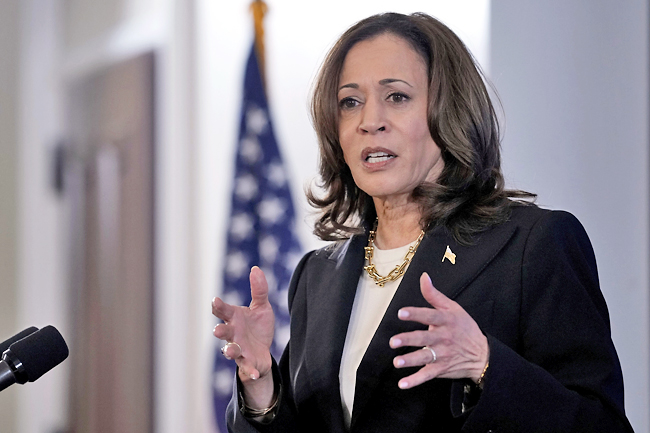WASHINGTON (AP) – United States (US) Vice President Kamala Harris has a new advertising push to draw attention to her plan to build three million new homes over four years, a move designed to contain inflationary pressures that also draws a sharp contrast to Republican Donald Trump’s approach.
Harris, the Democratic nominee for president, highlights her plan in a new minute-long ad that uses her personal experience, growing up in rental housing while her mother had saved for a decade before she could buy a home.
The ad targets voters in the swing states including Arizona and Nevada. Campaign surrogates are also holding 20 events this week focused on housing issues.
In addition to increasing home construction, Harris is proposing the government provide as much as USD25,000 in assistance to first-time buyers.
That message carries weight at this moment as housing costs have kept upward pressure on the consumer price index. Shelter costs are up 5.1 per cent over the past 12 months, compared to overall inflation being 2.9 per cent, according to the Bureau of Labor Statistics.
“Vice President Harris knows we need to do more to address our housing crisis, that’s why she has a plan to end the housing shortage” and will crack down on “corporate landlords and Wall Street banks hiking up rents and housing costs”, said campaign’s battleground states director Dan Kanninen.

The Harris plan would create tax breaks for homebuilders focused on first-time buyers and expand existing incentives for companies that construct rental housing. Because local zoning often restricts the supply of homes, she would also double the available funding to USD40 billion to encourage local governments to remove the regulations that prevent additional construction.
Although Trump made his reputation as a real estate developer, real estate data show there was a shortage of available housing during his presidency that has continued.
That shortage became more problematic when inflation jumped as the country recovered from the pandemic and faced higher food and energy costs after conflicts in Europe and the Middle East.
The high inflation damaged the approval ratings of President Joe Biden, who Republicans and some economists blamed for sparking the price runups with his pandemic aid.
Mortgage rates climbed to levels that were prohibitively high for many would-be buyers.
At the same time, many existing homeowners held off on listing their properties for sale in ways that compounded the inflation challenge.





